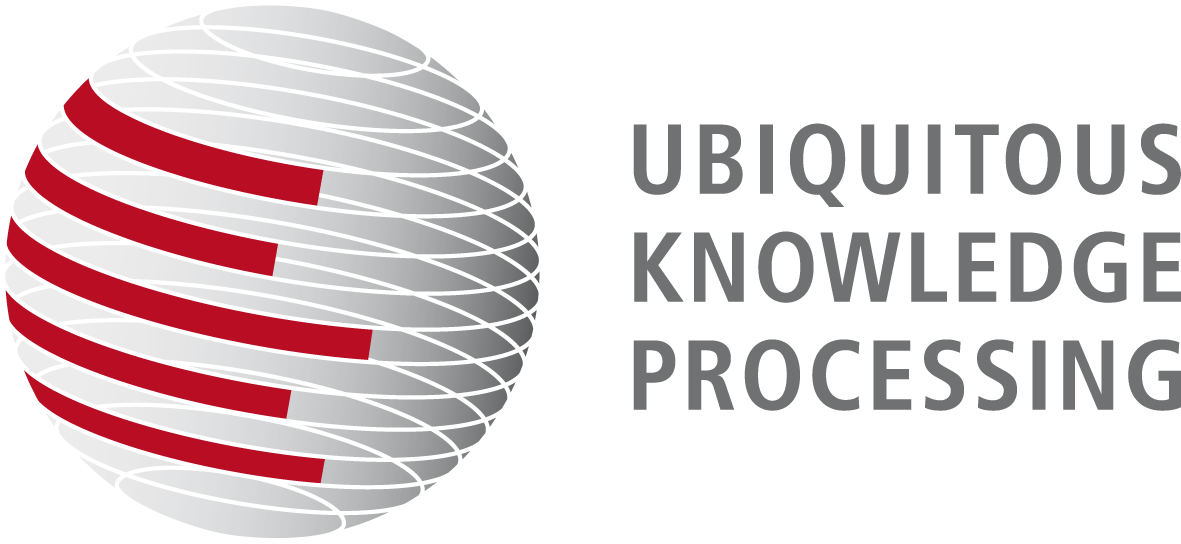Organization
- Lecture: Friday 09:50-11:30, C202 / C205
- Practice Class: Friday 08:00-09:40, S101 / A1
- The learning material is available from the Moodle eLeaning platform.
- Lecture will start on April 14, 2023. Practice classes will start on April 28, 2023.
Exam
First exam (summer 2023):
- Date/Time: September 11th, 2023 (90min exam)
- Room: Announced via Moodle
Second exam (winter 2023/2024):
- Date/Time: no date yet (90min exam)
- Room: Announced via Moodle
Teaching Staff
Lecture:
- Prof. Dr. Carsten Binnig
- Dr. rer. nat. Thomas Arnold
Tutor consultation hours:
- Announced via Moodle
Course content
In this lecture, we discuss the foundations of information management. In the first part of the course, we focus on relational databases. In the second part, we provide an introduction to automatic language- and knowledge processing with a particular focus on text analytics.
Key topics:
- Foundations of information management
- Characteristics of information systems
- Information storage and retrieval
- Declarative and navigational access
- Database systems and architectures
- Data redundancy and data integration
- Data independence
- Database architecture models
- Conceptual data modeling
- Foundations of knowledge representation
- Entity relationship model
- UML structure diagrams
- Logical data modeling
- Relational model
- Relational algebra
- Relational calculus
- Relational database design
- Database anomalies
- Normalization
- Query languages
- SQL
- Query-by-example
- Transactions and multi-user environment
- Serialization
- Locks, 2PL
- ACID criteria, isolation levels
- Index structures and performance
- Recent database concepts
- In-memory databases
- NoSQL
- Foundations of language and knowledge processing
- Text as a knowledge resource
- Text formats and databases
- XML
- Pattern search
- Linguistic preprocessing
- Text corpora
- Lexical resources and ontologies
- Information retrieval
- Vector space models
- Information extraction
- Named entity recognition
- Fundamentals of machine learning
Qualification Goals
After attending this course, students are in a position to
- name and explain the foundational concepts of information management and language and knowledge processing,
- explain, implement, and maintain information systems,
- interpret and construct formal data models,
- design and use relational databases,
- name and compare different language-related data sources,
- extract and retrieve basic information from natural language text.
Literature
- Gunter Saake, Kai-Uwe Sattler, Andreas Heuer: Datenbanken: Konzepte und Sprachen. 4. Auflage, Heidelberg: mitp, 2010. ISBN: 978-38266-9057-0.
- Ramez Elmasri, Shamkant B. Navathe: Fundamentals of Database Systems. 6th edition. Boston et al.: Addison-Wesley, 2011. ISBN: 978-0-136-08620-8.
- Hector Garcia-Molina, Jeffrey D. Ullman, Jennifer Widom: Database Systems: The Complete Book. 2nd edition. Upper Saddle River, NJ: Pearson Prentice Hall, 2009. ISBN: 978-0-131-87325-4.
- Gottfried Vossen: Datenmodelle, Datenbanksprachen und Datenbankmanagementsysteme. 5. Auflage. München: Oldenbourg, 2008. ISBN 978-3-486-27574-2.
- Daniel Jurafsky, James H. Martin: Speech and Language Processing. An Introduction to Natural Language Processing, Computational Linguistics, and Speech Recognition. Second Edition. Upper Saddle River: Prentice Hall, 2009. ISBN: 978-0-13-187321-6.
- Steven Bird, Ewan Klein, Edward Loper: Natural Language Processing with Python, O’Reilly, 2009. ISBN: 978-0-596-51649-9.
- Kai-Uwe Carstensen, Christian Ebert, Cornelia Endriss, Susanne Jekat, Ralf Klabunde: Computerlinguistik und Sprachtechnologie. Eine Einführung. 3. Auflage. Heidelberg: Spektrum, 2009. ISBN: 978-3-8274-20123-7.
- Ruslan Mitkov (Ed.): The Oxford Handbook of Computational Linguistics. Oxford: Oxford University Press. 2005. ISBN: 978-0-19-927634-9.



